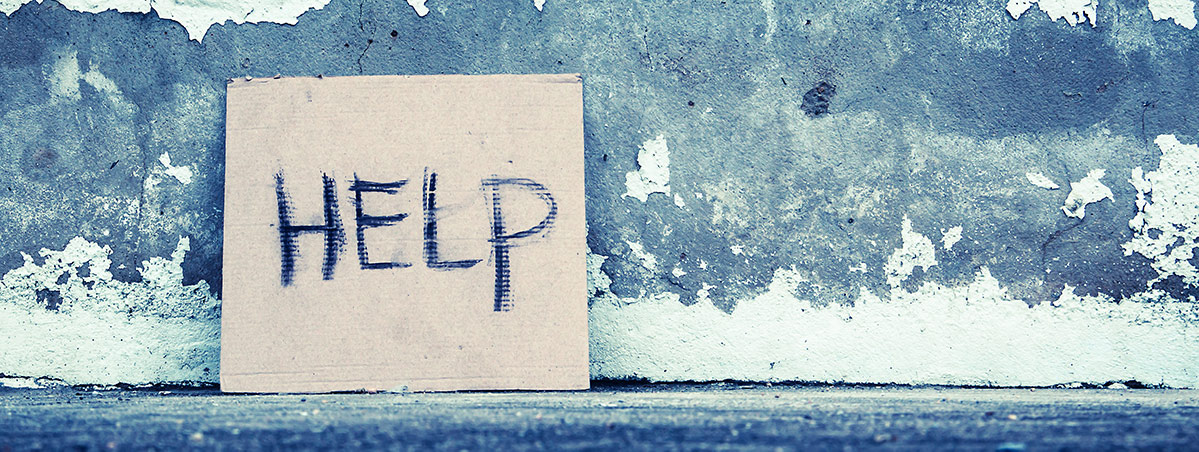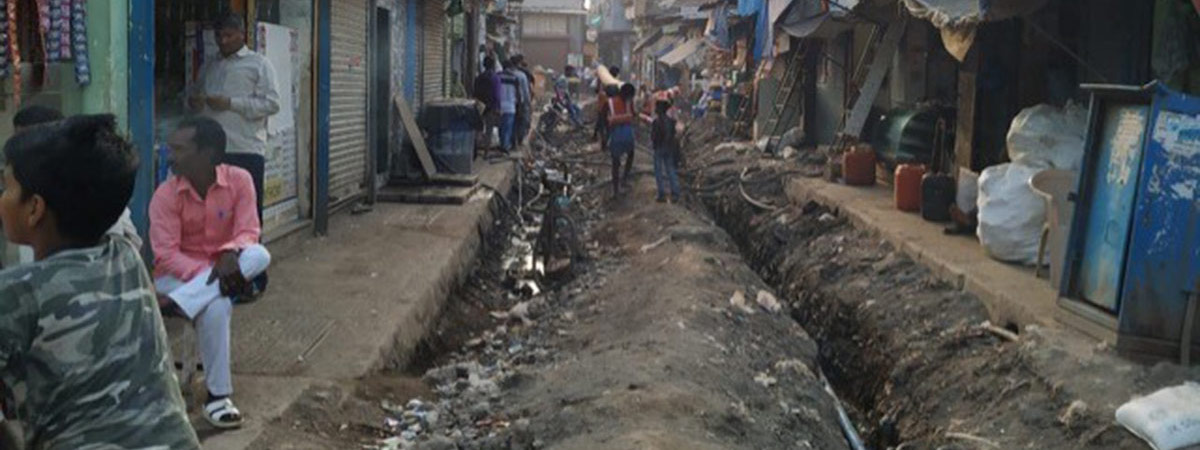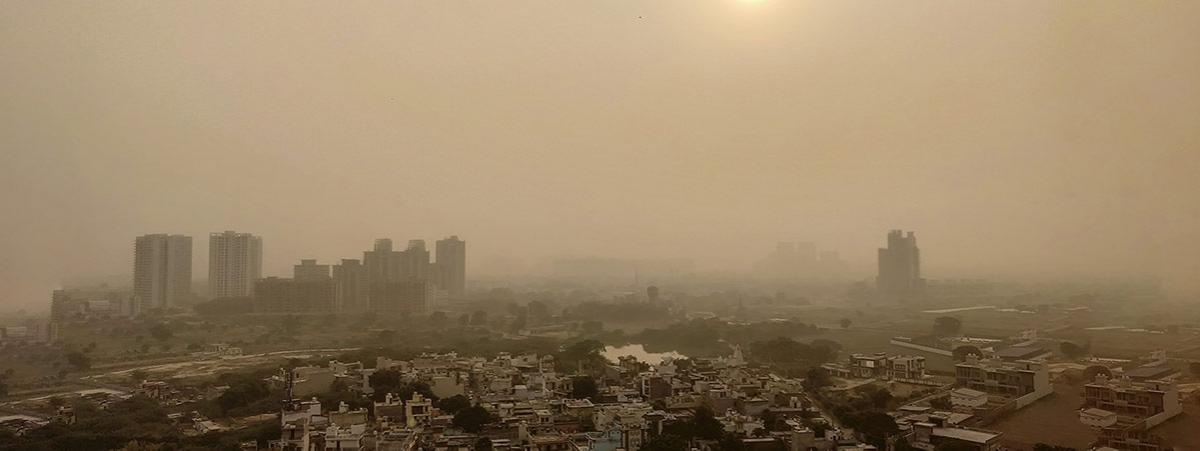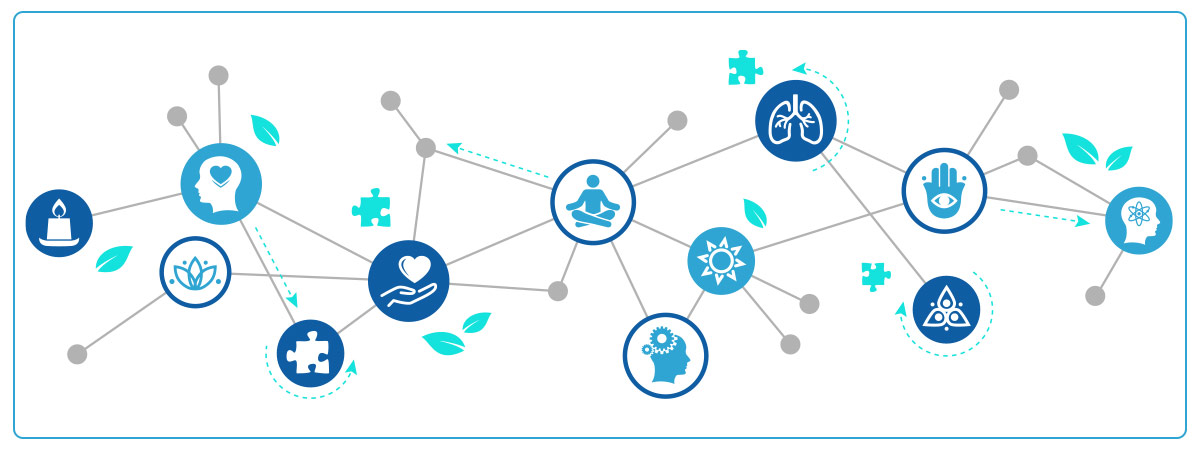
‘Collaboration and Solidarity’
Examining Sustainable Development Work Related to Income, Economic Inequality, Health, and Well-Being in the Ivan Allen College
By Ian Frazer
Sustainable development is about more than just making individual decisions that benefit the Earth. A sustainable economy also prioritizes dignified work and social services for everyone. And a viable community is built with the mental and physical health of its members in mind.
Three intertwined issues illustrate these concepts: the economic questions of poverty, hunger, and decent work; the impact of physical and mental health; and efforts to promote a broader sense of well-being.
“When we’re in a state where we feel well, and we’re feeling good about our purpose, the obligations and work we have to do just flow so much better,” said Narin Hassan, an associate professor in the School of Literature, Media, and Communication.
Understanding Poverty Beyond Income

Shatakshee Dhongde’s work explores poverty and how the narrow definition of it as a lack of income is insufficient. A significant part of her research is on what is called “multidimensional deprivation,” or the idea that the traditional income-based poverty definition does not adequately capture the true state of deprivation in the United States and around the world. Instead, she measures deprivation across multiple dimensions, including health, education, standard of living, security, social connections, and housing quality.
For instance, in groundbreaking research published in 2017 with Robert Haveman of the University of Wisconsin-Madison, Dhongde found that the official poverty rate during the Great Recession undercounted those truly suffering deprivation. She discovered that nearly 30 percent of people slightly above the poverty line during that crisis were actually experiencing multiple deprivations.
In her most recent work, Dhongde analyzed how Covid-19 affected U.S. residents during the early months of the pandemic and found that Hispanics, younger adults, and those without a college degree were disproportionately affected.
“The UN SDG goal 1 is to end poverty in all its forms. This approach to examining deprivation really allows us to see that poverty is about much more than income and that to build a truly sustainable future, we need to consider so many more factors, such as how we provide healthcare, how we provide education, how we get people into decent housing,” Dhongde said.
Analyzing International Development at the Local Level

Inquiries into these issues take many forms. For instance, researchers such as Lindsey Bullinger in the School of Public Policy and Kelly Fong in the School of History and Sociology have been working on the impacts of the pandemic, evictions, and other issues on child and family welfare.
For Anjali Thomas, associate professor in the Sam Nunn School of International Affairs, her work is fundamentally about well-being.
“What can be more important than thinking about people’s well-being?” Thomas said. “When we think about subjects like infrastructure provision, it’s not necessarily directly about well-being. But there’s always a sort of implication that motivates me, like how rural roads can improve people’s lives.”
One of Thomas’ current projects, which she is currently conducting with colleagues at Columbia University and the University of California-San Diego, focuses on a different infrastructure element — water access in informal settlements in Mumbai, India, a city of more than 18 million people. The collaborators are studying various civil society interventions to see which best helps the disadvantaged residents of these settlements — who are often migrants — gain access to a municipal water connection.
In one intervention, NGOs helped the residents navigate the bureaucracy. In the other, groups helped the residents organize to improve their visibility with local politicians, who often come from another social group that tends to have less favorable views of migrants.
The study’s findings are still in the preliminary stage. From what Thomas has seen, the groups that received interventions were able to better navigate the local political processes, submit more applications for water connection, and draw more visits from local officials. Whether that increased access to water is a more complicated question. It could also depend on factors such as the local politicians’ party affiliation, Thomas said.
What is more certain is the impact social science and humanities scholars can have on helping solve these issues.
“There are a lot of non-technical things that are often barriers to things like improving poverty and providing clean water and sanitation, things that seem very technical,” Thomas said. “But it’s often more of an issue of social, cultural, political, or economic barriers. I think that’s why the social sciences play a really important role.”
How a Society’s Values Shape the Sustainability of Infrastructure

While Thomas has been focusing on the impact of civil society on development, her Nunn School colleague, Professor Brian Woodall, has been studying the concept of what he calls “value-focused infrastructure development.” It’s an idea that helps explain how the values ingrained in social institutions can help — or hinder — the creation of a sustainable and inclusive economic system.
Woodall’s interest in the subject began with his study of renowned economist Douglas North’s concept of institutions. However, Woodall found North’s idea to be overly static. So he sought to build a model that incorporated the values of decision-makers at a particular point in time to the study of institutions and their products.
Woodall’s interdisciplinary project — which also involved Adjo Amekudzi-Kennedy of the School of Civil and Environmental Engineering, Alex Karner, a former assistant professor in the School of City and Regional Planning now at the University of Texas-Austin, and Janille Smith-Colin of Southern Methodist University — began as a seed project from Serve-Learn-Sustain. An upcoming paper focuses on three countries — the United States, Denmark, and Japan — as case studies, examining how different values shaped the formation of those countries’ governing institutions and their subsequent infrastructure development. While individualism and self-determination were primary forces in the United States’ development, Denmark and Japan were more focused on collectivism, according to the study.
The results of these differences can be stark. One example is the difference in CEO-average worker pay disparities, which is far greater in the United States than in Japan and Denmark. The United States also has a significantly larger Gini coefficient, a popular measure of income inequality. To Woodall, these takeaways reinforce the importance of large-scale societal involvement in decision-making and political processes to build a sustainable socio-economic system.
“If societal acceptance isn’t there (for infrastructure decisions), it’s not going to be sustainable in the long term,” Woodall said.
The Influence of Pollution on Social Structures at Home

Another perspective on how societal development can affect the sustainability of the social fabric comes from Vikrant Kamble, a Ph.D. student in the School of Economics.
Kamble’s recent paper, “The Effect of Air Pollution on Labor Force Participation of Married Couples in India,” won third place in this year’s Ivan Allen College Graduate Paper Competition. His work examines how side effects of a society’s development can impact its social structures.
Kamble came to Georgia Tech planning to study development economics. But classes in environmental economics taught by Matthew Oliver and Dylan Brewer sparked an interest in that field. When Kamble came across a survey from India’s Chambers of Commerce and Industry that showed increased worker absenteeism due to air pollution in Delhi — India’s capital territory — he started thinking about how to form a research hypothesis around that issue.
He wound up focusing on married couples due to the added factor of one member of the household having to take on caregiving duties if the other were to fall ill. This led to him finding both direct and indirect effects of pollution in his study. For instance, one spouse could fall ill due to the effects of pollution, forcing the other to work less to act as a caregiver, dragging down overall household income. In turn, that meant the household members who had fallen ill would often have to work more to make up the lost wages, affecting family life.
This intersection of environmental and developmental issues is a crucial area of study and emphasis for many fast-developing countries, such as Kamble’s native India. He hopes that research like his can influence policymakers to keep the effects of growth on society in mind.
“They need to be ready with a solution,” Kamble said. “They cannot avoid pollution, but they need to be prepared for the effects of pollution on society.”
Putting Physical and Mental Health at the Forefront

These goals of well-being and dignity don’t just apply to research: They can also inform the day-to-day life of Ivan Allen College students and the broader community.
Take, for example, the work of Jonathan Shelley, a Marion L. Brittain Fellow, whose project, “Shakespeare and the Common Good in Atlanta,” is part of a project to provide recently released prison inmates with a free, accredited class on Shakespeare.
“This project seeks to reduce inequality by providing returning citizens with quality educational experiences as well as making these students co-collaborators in the development of new pedagogical methods,” Shelley said.
Another LMC faculty member working in this space is Narin Hassan, who has made physical and mental health a primary focus in her teaching and in WELLMC, the initiative she founded with Senior Academic Professional Jillann Hertel.
Hassan — who specializes in 19th-century literature and culture and the intersections of gender, colonialism, and medicine — has also practiced and taught yoga for more than 20 years. When the pandemic pushed the vast majority of Georgia Tech’s classes and research activities online, she and Hertel began to form ideas for an initiative that addressed the physical and mental health of students. The initiative started an Instagram page that “share(s) feel-good tidbits and opportunities.” Hassan also teaches three yoga classes per week via Zoom that are open to all students, faculty, and staff. WELLMC has these specific health objectives, but it is also focused more broadly on maintaining the community’s health and connectedness.
“Those sorts of ideas related to creating better connections and well-being have been a big part of what I do in my classes anyway,” Hassan said.
That includes things such as conducting breathing exercises, simple movement breaks, and wellness check-ins within classes, which she would do at times before the pandemic and which students began to ask for more and more. She also has incorporated questions of well-being into her class, LMC 3219: Literature and Medicine. When Hassan taught that class in the fall, she had one assignment that specifically asked students to take 45 minutes outdoors in nature or in a physical space in which they were comfortable, spend some time without technology simply focused on the surroundings, and write a short, ungraded reflection piece on the experience.
It was a task very out-of-step with the normally high-pressure environment of a technological university like Georgia Tech. Still, it was much appreciated by students and had effects beyond just the assignment: Students reported to Hassan that taking the time to disconnect helped them focus on other assignments and tasks. LMC 3219 also incorporated discussions on well-being with guest speakers on topics ranging from the culture of medicine during the pandemic to addressing “grind culture” and health in the United States.
WELLMC still has room to grow, as Hassan sees it. She and Hertel have been brainstorming other ideas for the initiative, including a new website with resources, wellness workshops, speaker events, and community-building initiatives, which will ideally grow to encompass the broader College community.
“It’s an initiative that will become a way to connect everybody even more broadly,” Hassan said.
